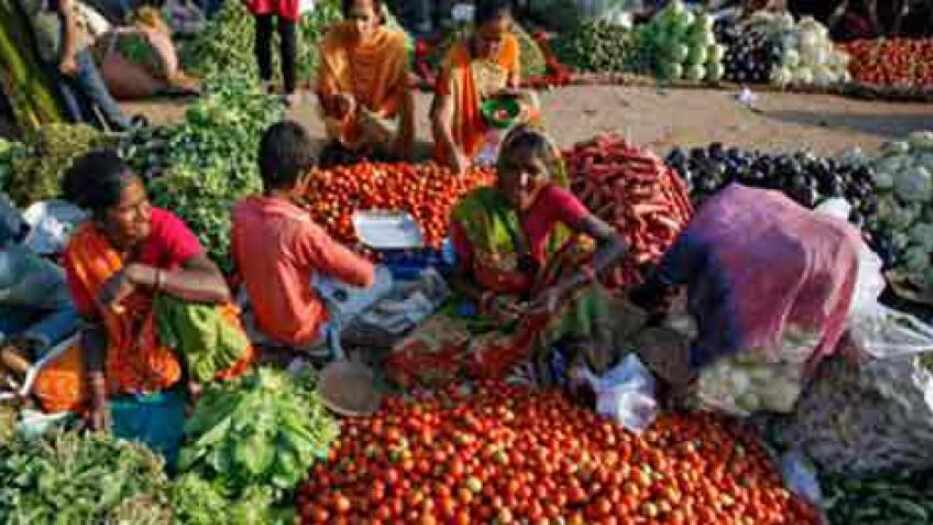Retail inflation eases to 5.59% in July on softer food prices

New Delhi: Declining prices of food items like vegetables pulled down retail inflation to 5.59 per cent in July, bringing it back within the RBI's comfort zone after two months, official data showed on Thursday.
The retail inflation based on the Consumer Price Index (CPI) had remained above 6 per cent during May and June.
The government has mandated the RBI to maintain retail inflation at 4 per cent, with a margin of 2 per cent on either side. The CPI based inflation stood at 6.26 per cent in June 2021 and 6.73 per cent in July 2020. The overall food inflation softened to 3.96 per cent in July this year, from 5.15 per cent in the preceding month.
Vegetable prices decreased at a faster pace, with inflation dropping to (-) 7.75 per cent in July compared to (-) 0.7 per cent in the previous month, as per the data. The rate of price rise in pulses and products was 9.04 per cent compared to 10.01 per cent in June 2021.
However, inflation was higher in protein rich items like meat, fish, eggs and milk.
As per the the National Statistical Office (NSO) data, the rate of price rise in the 'oils and fats' segment eased to 32.53 per cent during July from nearly 35 per cent in the previous month.
Inflation in the fuel and light segment was mildly lower at 12.38 per cent. The supply-side measures taken by the government appear to have helped dampen the inflation for oils and fats as well as pulses, Aditi Nayar, Chief Economist, ICRA, said.
"We anticipate that the MPC will embark on policy normalisation once domestic demand strengthens and starts dominating inflationary pressures, in place of supply-side issues.
"We foresee a change in the stance to neutral from accommodative in the February 2022 policy review, followed by a hike in the repo rate of 25 bps each in the April 2022 and June 2022 reviews," she said.
Earlier this month, the Reserve Bank had kept the key interest rate unchanged. It focuses mainly on the CPI while deciding its bi-monthly monetary policy. "The primary reason for lower than expected inflation was entirely food inflation, which fell to 3-month low of 3.9 per cent last month, compared to 5 per cent in the previous two months," Nikhil Gupta, Chief Economist at Motilal Oswal Financial Services, said.
Sreejith Balasubramanian, Economist - Fund Management, IDFC AMC, said it will be vital to track any sustainable recovery in demand (apart from the pent up portion) that typically creates price pressures which are more sticky but responsive to monetary policy, unlike supply-side pressures.
The RBI has projected the CPI inflation at 5.7 per cent during 2021-22 — 5.9 per cent in the second quarter, 5.3 per cent in third, and 5.8 per cent in the fourth quarter of the fiscal, with risks broadly balanced.



